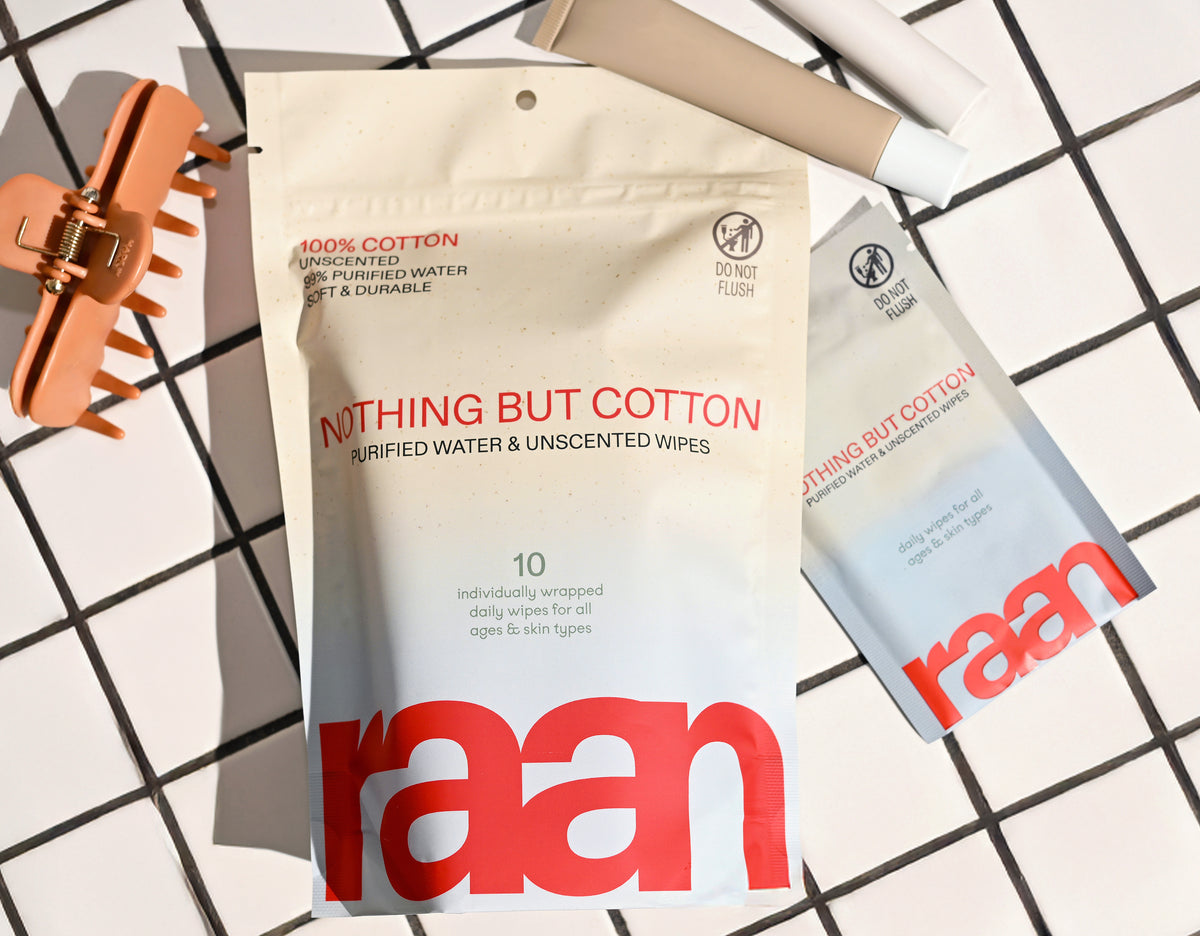The Real Challenge of Finding the Best Face Products for Sensitive Skin
If you've ever stood in the skincare aisle feeling overwhelmed by endless "gentle" and "hypoallergenic" claims, you're not alone. Sensitive skin affects up to 60% of people, yet finding truly effective face products that won't trigger irritation remains one of the most frustrating beauty challenges.
Key Takeaways
- Sensitive skin affects up to 60% of people, making it a common concern.
- Many products claim to be "gentle" and "hypoallergenic," but not all are truly effective for sensitive skin.
- Finding face products that do not cause irritation is a significant challenge for those with sensitive skin.
- Consumers often feel overwhelmed by the variety of skincare options available.
Table of Contents
Quick Answer: Best Face Products for Sensitive Skin
The best face products for sensitive skin feature minimal, EWG-verified ingredients like ceramides, hyaluronic acid, and organic aloe. Look for fragrance-free, alcohol-free formulas from dermatologist-recommended brands. Essential products include a gentle cream cleanser, alcohol-free toner, barrier-repairing moisturizer, and mineral sunscreen. Always patch test new products and introduce one at a time.
Here's what makes this so tricky: sensitive skin isn't just one thing. Your skin might react to fragrances while your friend breaks out from seemingly "clean" botanical extracts. The term "sensitive skin" gets thrown around by marketing teams, but the science behind it reveals a complex interplay of genetics, environment, and compromised skin barrier function.
We're going to cut through the confusion and give you a clear roadmap to building a skincare routine that actually works for reactive skin. No fear-mongering about "toxic" ingredients, no impossible-to-pronounce miracle compounds — just honest, science-backed guidance on what to look for, what to avoid, and how to make informed choices.
The truth is, good skin products for sensitive skin don't need to be complicated or expensive. They need to be thoughtfully formulated with ingredients your skin can actually tolerate. Let's start with understanding what sensitive skin really means and why it behaves the way it does.
Understanding Sensitive Skin: More Than Just "Reactive"

What Is Sensitive Skin?
Sensitive skin isn't technically a medical diagnosis — it's a constellation of symptoms that signal your skin barrier isn't functioning optimally. Dermatologists define sensitive skin as skin that experiences heightened reactions to products, environmental factors, or physical stimuli that wouldn't typically bother most people.
The key characteristics include:
- Stinging or burning when applying products, especially those with active ingredients
- Visible redness that appears quickly and may linger
- Dryness and flaking, even when you're moisturizing regularly
- Tightness that feels uncomfortable, particularly after cleansing
- Breakouts or bumps that seem to appear out of nowhere
What's happening beneath the surface? Your skin barrier — that protective outer layer made up of skin cells and lipids — isn't doing its job effectively. Think of it like a brick wall where the mortar has started to crumble. Water escapes more easily, irritants penetrate more deeply, and your skin becomes hypersensitive to things it should normally handle without issue.
Important distinction: Sensitive skin differs from allergic reactions or contact dermatitis. Allergic reactions involve your immune system and typically cause consistent, predictable responses to specific allergens. Sensitive skin reactions are more variable and often related to barrier dysfunction rather than true allergies.
Common Causes and Triggers
Understanding what triggers your sensitive skin is half the battle in choosing the best skin care line for sensitive skin. The causes typically fall into two categories: external and internal factors.
External triggers are often the easiest to identify and control:
- Harsh ingredients: Fragrances, denatured alcohol, sulfates, and essential oils top the list
- Environmental factors: Extreme temperatures, low humidity, pollution, and UV exposure
- Over-cleansing: Using multiple products or scrubbing too vigorously
- Physical irritants: Rough fabrics, harsh detergents, or abrasive exfoliants
Internal factors are trickier but equally important:
- Hormonal fluctuations: Particularly during menstruation, pregnancy, or menopause
- Stress: Chronic stress elevates cortisol, which can compromise skin barrier function
- Genetics: Some people simply inherit a predisposition to sensitive skin
- Age: Skin becomes more reactive as natural lipid production decreases over time
The frustrating reality is that sensitive skin can also be cyclical. A product that worked fine for months might suddenly cause irritation during a stressful period or seasonal change. This is why building a flexible routine with proven gentle skincare products becomes so crucial.
Recognizing and Diagnosing Sensitive Skin
Many people assume they have sensitive skin when they might actually be dealing with over-exfoliation, product buildup, or an underlying skin condition like rosacea or eczema. Here's how to tell the difference:
True sensitive skin symptoms:
- Reactions occur within minutes of product application
- Multiple unrelated products cause similar reactions
- Symptoms improve when you simplify your routine
- Your skin feels better with minimal, gentle products
When it might be something else:
- Reactions only happen with specific product categories (like retinoids or acids)
- Symptoms persist even with the gentlest products
- You have other symptoms like persistent redness, visible blood vessels, or inflamed bumps
- Over-the-counter gentle products provide no relief
A simple at-home test can help clarify: wash your face with plain water only for three days, then apply a small amount of a basic, fragrance-free moisturizer to one side of your face. If that side reacts while the other doesn't, you likely have sensitive skin. If both sides continue to show irritation, consider consulting a dermatologist to rule out underlying conditions.
The goal isn't to achieve perfect skin overnight — it's to understand your skin's unique needs so you can choose skincare products for sensitive skin that support rather than compromise your skin barrier. In the next section, we'll dive into the specific ingredients that can make or break your sensitive skin routine.
Essential Ingredients: What to Seek and What to Skip
Best Ingredients for Sensitive Skin
When you're dealing with sensitive skin, every ingredient matters. The best skin care line for sensitive skin focuses on a short list of proven, barrier-supporting ingredients rather than trendy actives that promise overnight transformation.
Here are the heavy-hitters that consistently deliver results for reactive skin:
- Ceramides: These lipid molecules are naturally found in your skin barrier and help seal in moisture while keeping irritants out
- Hyaluronic acid: A moisture magnet that can hold up to 1,000 times its weight in water, providing hydration without heaviness
- Niacinamide (Vitamin B3): Reduces redness, strengthens the skin barrier, and regulates oil production at concentrations of 2-5%
- Organic aloe vera: Contains anti-inflammatory compounds that soothe irritation and support healing
- Squalane: A lightweight oil that mimics your skin's natural sebum, providing moisture without clogging pores
- Colloidal oatmeal: Contains compounds called avenanthramides that calm inflammation and reduce itching
These ingredients work because they support your skin's natural functions rather than trying to override them. Ceramides and fatty acids literally help rebuild your compromised skin barrier, while humectants like hyaluronic acid ensure your skin stays properly hydrated.
Pro tip: Look for products that combine multiple barrier-supporting ingredients. A moisturizer with ceramides, hyaluronic acid, and niacinamide will be more effective than three separate products with single actives.
Newer ingredients showing promise for sensitive skin include bakuchiol (a plant-based retinol alternative), ectoin (a stress-protection molecule), and thermal spring water from other popular brands, which contains naturally occurring minerals that calm reactive skin.
Ingredients to Avoid
Just as important as knowing what to use is understanding what to skip. These common skincare ingredients are frequent culprits behind sensitive skin flare-ups:
| Ingredient Category | Specific Examples | Why It's Problematic |
|---|---|---|
| Fragrances | Parfum, essential oils, citrus extracts | Most common cause of contact dermatitis; no benefit for skin health |
| Drying Alcohols | Denatured alcohol, SD alcohol, ethanol | Strip natural oils and compromise barrier function |
| Harsh Surfactants | Sodium lauryl sulfate (SLS), ammonium lauryl sulfate | Over-cleanse and disrupt skin's natural pH balance |
| Physical Exfoliants | Walnut shells, apricot pits, microbeads | Create microscopic tears that increase sensitivity |
| High-Concentration Actives | Retinol above 0.25%, glycolic acid above 5% | Too aggressive for compromised skin barriers |
The tricky part is that some of these ingredients aren't inherently "bad" — they just don't belong in sensitive skin care products. Glycolic acid can be transformative for resilient skin, but it's often too harsh for reactive types. Similarly, essential oils like tea tree or lavender have antimicrobial properties, but they're also potent allergens for many people.
Reading ingredient lists becomes crucial here. Companies often hide problematic ingredients behind terms like "natural fragrance" or "botanical extracts." If you see "parfum" or "fragrance" anywhere on the label — even at the end — consider it a red flag for sensitive skin.
Decoding Product Labels
Marketing claims like "hypoallergenic," "dermatologist-tested," and "for sensitive skin" aren't regulated, which means they can be more about marketing than meaningful formulation differences. Here's how to cut through the noise:
Look for these credible certifications:
- EWG Verified: Products meet strict health standards and ingredient transparency requirements
- National Eczema Association Seal: Specifically tested for eczema-prone and sensitive skin
- Fragrance-free: More reliable than "unscented," which may contain masking fragrances
The ingredient list tells the real story. Ingredients are listed in descending order of concentration, so the first five ingredients make up the majority of the product. For good skin care for sensitive skin, you want to see gentle, recognizable ingredients in those top spots — things like water, glycerin, ceramides, or plant-based oils.
Avoid products with long ingredient lists full of botanical extracts. While plants can be beneficial, sensitive skin often reacts to the complex mix of compounds found in botanical ingredients. Simpler formulations with fewer, well-researched ingredients typically perform better for reactive skin types.
Building Your Sensitive Skin Routine

The Four Essential Steps
A successful skincare routine for sensitive skin follows the "less is more" philosophy. While beauty influencers might showcase 10-step routines, sensitive skin thrives with just four well-chosen products used consistently.
Morning routine:
- Gentle cleanser (or just water if your skin is very reactive)
- Alcohol-free toner or essence (optional)
- Lightweight moisturizer with barrier-supporting ingredients
- Mineral sunscreen (SPF 30 or higher)
Evening routine:
- Gentle cleanser to remove sunscreen and daily buildup
- Treatment product (if using actives — start here slowly)
- Rich moisturizer or facial oil to support overnight repair
The key is introducing products one at a time and giving your skin at least two weeks to adjust before adding anything new. This methodical approach helps you identify exactly which products work and which ones trigger reactions.
Choosing the Right Cleanser
Cleansing is where many people with sensitive skin go wrong. The goal isn't to achieve that "squeaky clean" feeling — that's actually a sign you've stripped your skin's natural protective oils.
Best cleanser types for sensitive skin:
- Cream cleansers: Gentle, non-foaming formulas that cleanse without stripping
- Oil cleansers: Effective at removing makeup and sunscreen while nourishing skin
- Micellar water: No-rinse option that's gentle enough for daily use
- Gentle gel cleansers: Low-pH formulas that maintain skin's natural acid mantle
Avoid anything that foams heavily, contains sulfates, or leaves your skin feeling tight. Your face should feel soft and comfortable after cleansing, never dry or irritated.
For days when your skin feels particularly reactive, consider cleansing with just lukewarm water and following up with a gentle, unscented wipe to remove any remaining residue. Gentle skincare for sensitive skin sometimes means knowing when to do less, not more.
Moisturizing: Your Most Important Step
Moisturizer isn't just about comfort — it's medicine for sensitive skin. A good moisturizer creates a protective barrier that prevents water loss and shields your skin from environmental irritants.
Cream Moisturizers
- Rich, occlusive texture ideal for very dry or irritated skin
- Often contain ceramides and fatty acids for barrier repair
- Long-lasting hydration, especially overnight
- Best for mature or severely compromised skin
Gel Moisturizers
- Lightweight, fast-absorbing texture
- Good for sensitive skin that's also acne-prone
- Less likely to feel heavy or greasy
- May need reapplication throughout the day
The best approach often involves using different moisturizers for different needs: a lightweight gel in the morning under sunscreen, and a richer cream at night for intensive repair. Look for formulas that contain multiple types of moisturizing ingredients — humectants (like hyaluronic acid), emollients (like squalane), and occlusives (like ceramides) — for comprehensive hydration.
Apply moisturizer to slightly damp skin to lock in extra hydration, and don't forget often-missed areas like your neck, jawline, and the delicate skin around your eyes.
Sun Protection Without Irritation
Sunscreen is non-negotiable for sensitive skin, but finding one that doesn't cause stinging, burning, or breakouts can feel impossible. The key is understanding the difference between chemical and physical (mineral) sunscreens.
Physical sunscreens containing zinc oxide and titanium dioxide sit on top of your skin and deflect UV rays like a shield. They're generally much better tolerated by reactive skin because they don't penetrate the skin barrier or cause chemical reactions.
Chemical sunscreens absorb into your skin and convert UV rays into heat. Ingredients like avobenzone, octinoxate, and oxybenzone are common irritants for sensitive skin types and can cause contact dermatitis or photoallergic reactions.
Physical Sunscreens
- Gentle on sensitive and reactive skin
- Provide immediate protection upon application
- Less likely to cause allergic reactions
- Often contain soothing ingredients like niacinamide
Chemical Sunscreens
- Can cause stinging and burning on sensitive skin
- May trigger contact dermatitis or photoallergies
- Require 15-20 minutes to become effective
- Often contain fragrances and preservatives
Look for physical sunscreens with SPF 30-50 that also contain sensitive skin care products ingredients like ceramides, hyaluronic acid, or niacinamide. These multitasking formulas provide protection while supporting your skin barrier throughout the day.
Apply sunscreen as the final step in your morning routine, using about 1/4 teaspoon for your face and neck. Reapply every two hours, or use a gentle setting powder with SPF for touch-ups over makeup.
When and How to Introduce Active Ingredients
Once your sensitive skin face routine is stable and your barrier is functioning well, you might consider adding active ingredients for specific concerns like fine lines, dark spots, or occasional breakouts.
The cardinal rule: introduce only one active ingredient at a time, starting with the lowest possible concentration and using it just once or twice per week initially.
Sensitive skin-friendly actives:
- Bakuchiol (0.5-1%): Plant-based retinol alternative with anti-aging benefits and no irritation
- Azelaic acid (10-15%): Gentle exfoliant that reduces redness and helps with acne
- Low-dose retinol (0.25% or less): Start with retinyl palmitate or encapsulated retinol
- Lactic acid (5% or less): Gentler AHA option that also provides hydration
- Vitamin C (L-ascorbic acid 10-15%): Choose stable forms like magnesium ascorbyl phosphate
Always apply actives to clean, dry skin and follow with your regular moisturizer. If you experience any stinging, redness, or increased sensitivity, back off immediately and give your skin time to recover.
The "sandwich method" works well for sensitive skin: apply a thin layer of moisturizer, then your active ingredient, then another layer of moisturizer. This buffers the active and reduces irritation potential while still allowing it to work effectively.
Beyond Products: Lifestyle Factors That Matter
Managing Environmental Triggers
Even the best sensitive skin care brands can't protect you from environmental factors that compromise your skin barrier. Identifying and minimizing these triggers is crucial for long-term skin health.
Common environmental culprits:
- Hard water: High mineral content can leave residue that irritates sensitive skin
- Indoor heating and air conditioning: Dry air strips moisture from your skin
- Harsh laundry detergents: Residue on pillowcases and towels can cause contact dermatitis
- Synthetic fabrics: Polyester and nylon can trap heat and bacteria against your skin
- Extreme temperatures: Both hot and cold weather can trigger sensitivity flares
Simple adjustments make a significant difference. Install a shower filter if you have hard water, use a humidifier during dry months, and switch to fragrance-free, hypoallergenic laundry detergent. Choose breathable, natural fabrics like cotton for clothing that touches your face and body.
To care for sensitive skin during seasonal transitions, adjust your routine accordingly. Your summer gel moisturizer might not provide enough protection during winter months, while your winter cream might feel too heavy during humid summers.
The Stress-Skin Connection
Chronic stress directly impacts skin sensitivity through increased cortisol production, which weakens your skin barrier and increases inflammation. This creates a frustrating cycle: stress makes your skin more reactive, and skin problems create more stress.
Stress management isn't just good for your mental health — it's an essential component of sensitive skin skincare products strategy. Regular exercise, adequate sleep, and stress-reduction techniques like meditation or yoga can significantly improve skin tolerance and reduce flare-ups.
Pay attention to when your skin feels most reactive. Many people notice increased sensitivity during high-stress periods, hormonal fluctuations, or major life changes. During these times, simplify your routine even further and focus on gentle, barrier-supporting products.
Emergency skin rescue: When your skin is having a major reaction, strip back to just three products: a gentle cleanser (or just water), a basic moisturizer with ceramides, and mineral sunscreen during the day. Give your skin 1-2 weeks to calm down before reintroducing other products.
When to Seek Professional Help

While many people successfully manage sensitive skin with the right products and lifestyle adjustments, some situations require professional intervention. Recognizing when to consult a dermatologist can save you time, money, and frustration.
See a dermatologist if you experience:
- Persistent redness, burning, or stinging despite using gentle products
- Skin reactions that worsen over time or don't improve with basic care
- Suspected allergic contact dermatitis or eczema
- Sensitivity so severe it impacts your daily life or self-confidence
- Confusion about whether your skin issues are sensitivity, allergies, or an underlying condition
A dermatologist can perform patch testing to identify specific allergens, prescribe targeted treatments for conditions like rosacea or seborrheic dermatitis, and help you develop a customized routine based on your skin's unique needs.
Professional treatments like gentle chemical peels, LED light therapy, or prescription barrier repair creams might be options once your underlying skin condition is properly diagnosed and managed.
Your Path to Healthier Skin
Managing sensitive skin successfully requires patience, consistency, and a willingness to prioritize function over trends. The best face products sensitive skin routines aren't necessarily the most expensive or complex — they're the ones built around gentle, effective ingredients that support your skin's natural barrier function.
Start with the basics: a gentle cleanser, simple moisturizer with ceramides, and mineral sunscreen. Give each product at least two weeks to show its effects before making changes. Keep a skin diary to track what works, what doesn't, and any patterns you notice with flare-ups.
Remember that sensitive skin isn't a life sentence of irritation and limitation. With the right approach, most people can achieve comfortable, healthy skin that looks and feels its best. Focus on consistency over perfection, and don't be afraid to simplify when your skin tells you it needs a break.
The journey to finding your perfect skincare for sensitive skin routine might take time, but the payoff — calm, comfortable skin that doesn't dictate your daily choices — is absolutely worth the effort. Trust your skin, listen to what it's telling you, and remember that sometimes the most powerful thing you can do is simply be gentle. For more on the science behind sensitive skin care, see this authoritative resource.
Frequently Asked Questions
What is the best thing for sensitive skin on face?
The best approach for sensitive skin is to keep it simple with gentle, minimally processed ingredients that support the skin’s natural barrier. Look for products free from synthetic fragrances, harsh preservatives, and plastic fibers—ideally formulated with soothing agents like organic aloe and balanced pH levels. Using unbleached, 100 % cotton wipes with EWG-verified ingredients can also help maintain skin calmness without irritation.
Which brand is best for sensitive skin dermatologists?
Dermatologists often recommend brands that prioritize transparency, use scientifically backed ingredients, and avoid common irritants like synthetic fragrances or harsh preservatives. The focus is on formulations that preserve skin health with minimal complexity—products that contain food-grade preservatives, moisturizers like organic aloe, and materials such as unbleached cotton which reduce risk of irritation. Trustworthy brands also carry certifications that confirm safety and sustainability.
What are the 4 types of sensitive skin?
Sensitive skin can generally be categorized into four types: reactive (prone to redness and discomfort from environmental triggers), fragile (thin or delicate skin barrier), allergic (reaction to specific allergens), and irritated (skin damaged by harsh products or external factors). Understanding these distinctions helps in choosing products that avoid triggering sensitivities and support skin resilience with gentle, purposeful ingredients.
What skincare to avoid sensitive skin?
Avoid skincare products that contain synthetic fragrances, harsh preservatives, plastic fibers, and bleach, as these can disrupt the skin’s natural barrier and cause irritation. Also steer clear of formulas with unnecessary additives or over-engineered ingredients that don’t add functional value. Instead, opt for clean, minimally processed ingredients and materials that are verified safe for sensitive skin.
What causes hypersensitive skin on face?
Hypersensitive skin often results from a compromised skin barrier, which can be caused by over-exfoliation, allergic reactions, environmental stressors, or prolonged exposure to irritants. This weakened barrier makes the skin more reactive to products and external factors, leading to redness, itching, or discomfort. Supporting skin health with gentle, pH-balanced formulas and unbleached, natural materials helps reduce hypersensitivity over time.
Is CeraVe good for sensitive skin?
Many find that formulations designed to support the skin barrier with ceramides and gentle moisturizers are beneficial for sensitive skin. However, the suitability depends on the specific product ingredients and individual skin responses. Choosing products with minimal, food-grade preservatives and avoiding synthetic fragrances or plastic fibers aligns better with sensitive skin care principles and reduces risk of irritation.






